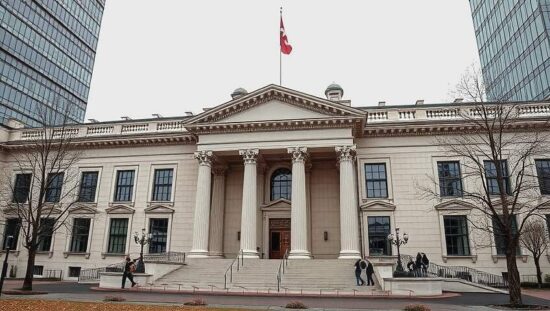On Tuesday, the Dax experienced gains. At the Xetra trading close, the index was calculated at 22,425 points, a 0.7% increase compared to the previous day’s close. Investors were pleased with the significant growth of Rheinmetall and Deutsche Bank shares, as both companies reported a strong increase in profits for the first quarter. On the other hand, Porsche shares experienced a setback due to a profit drop at the beginning of the year, attributed to weak business in China. Jochen Stanzl, the Chief Market Analyst at CMC Markets, said, “The Dax is struggling in the remaining hours until the month-end to maintain the upward trend in the big picture. There will still be important data on Chinese production, as well as inflation and GDP data from the US. This could cause further significant movements. Then it will be necessary to hold the required 22,200 points. The short sellers will also try to get a foot in the door again until tomorrow night.” Stanzl also mentioned that the reporting season was supposed to be a welcome distraction from daily trade-related news. However, in every financial report press conference, the words “tariffs” and “growth slowdown” were heard in quick succession. More and more companies, especially in the US, were not even daring to predict their business for the current fiscal year. While there is hope that progress will be made in negotiations with other countries, in the meantime, it is impossible to make predictions as the President’s trade policy changes almost daily. The trend towards cost reduction and austerity measures is evident and share buyback programs are being stopped. Companies are trying to hold on to costs. Corporate America is putting on the brakes and waiting for clarity in trade policy. The strong quarterly results of Deutsche Bank showed that the world can continue to function without the US. Europe has its own issues that can be dealt with without any concessions from Trump on tariffs. The companies may turn out to be much more resilient. However, Deutsche Bank has also made provisions for credit losses that could occur due to tariffs. Other large banks are also making similar preparations. There is also hope for state investments in infrastructure, defense and energy, which could significantly improve business later in the year. This is not only due to potential higher demand for loans. “The interest rate curve could also steepen if Germany issues more long-term government bonds, which would increase the profitability of banks’ lending business” said Stanzl. The European common currency, the Euro, was slightly weaker on Tuesday afternoon: One Euro cost 1.1402 US dollars and one US dollar was equivalent to 0.8770 Euros. The gold price also dropped significantly, with a fine ounce trading for 3,306 US dollars (-1.1%). This corresponds to a price of 93.21 Euros per gram. The oil price, meanwhile, experienced a significant decline: A barrel of Brent crude oil was trading at around 17:00 German time on Tuesday at 64.70 US dollars, which was 116 cents or 1.8% less than the previous trading day’s close.
2 minute read
Deutsche Bank’s Profit Surge Lifts Dax, as Investors Await Key Data and Trade Policy Clarity





